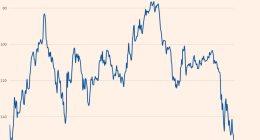
In today’s volatile and unpredictable business environment, effective leadership is more critical than ever. Leaders must navigate through economic downturns, technological disruptions, global crises, and rapidly evolving market dynamics. This article delves into the multifaceted nature of effective leadership in times of uncertainty, offering an in-depth exploration of key traits that distinguish exceptional leaders in today’s turbulent world.
- Adaptability:
In times of uncertainty, adaptability emerges as a cornerstone trait of effective leadership. Leaders must possess the agility to respond swiftly to changing circumstances, pivot strategies, and navigate through ambiguity. They understand that rigid plans may need adjustment and embrace change as an opportunity for growth. Adaptable leaders foster a culture of flexibility within their organizations, encouraging innovation, experimentation, and continuous learning. By remaining open-minded and receptive to new ideas, they inspire confidence and resilience among their teams, driving sustainable performance even amidst uncertainty.
- Communication:
Clear, transparent, and empathetic communication is indispensable for effective leadership in times of uncertainty. Leaders must articulate a compelling vision, provide context for decisions, and keep stakeholders informed about evolving circumstances. They actively listen to concerns, address anxieties, and foster open dialogue to build trust and alignment. Effective communicators convey authenticity, empathy, and vulnerability, creating a sense of connection and belonging within their teams. By fostering a culture of open communication, they empower employees to share ideas, voice concerns, and collaborate effectively, driving collective success in the face of uncertainty.
A clear and inspiring vision is a guiding beacon for organizations navigating through uncertainty. Effective leaders articulate a compelling purpose and direction, providing clarity and motivation for their teams. They communicate a vision that resonates with stakeholders, instilling confidence in the organization’s ability to overcome challenges and seize opportunities. Visionary leaders encourage innovation, creativity, and bold thinking, inspiring a shared commitment to achieving long-term goals. By aligning actions with the organization’s purpose and values, they foster a sense of meaning and fulfillment among employees, driving sustained engagement and performance.” Says Martha Michael Co-Founder of We Buy Any Houses As Is.
- Resilience:
“Resilience is a fundamental trait of effective leadership in times of uncertainty. Leaders must demonstrate strength, determination, and optimism in the face of adversity. They maintain a positive outlook, bounce back from setbacks, and inspire confidence in their ability to overcome challenges. Resilient leaders prioritize self-care, build support networks, and cultivate a growth mindset within their organizations. They view failures as learning opportunities, adapt quickly to changing circumstances, and persevere in the pursuit of their goals. By modeling resilience and perseverance, they foster a culture of resilience throughout the organization, empowering employees to thrive in the face of uncertainty.” Says Eric Lam, Head of Business Strategy at Los Angeles Tax Appeal.
Empathy is a cornerstone of effective leadership, particularly in times of uncertainty. Leaders who demonstrate empathy understand the emotions, concerns, and needs of their team members, fostering trust, loyalty, and camaraderie. They listen actively, show genuine concern, and provide support to employees facing challenges. Empathetic leaders create a safe and inclusive work environment where individuals feel valued, respected, and understood. They celebrate successes, acknowledge contributions, and recognize the unique strengths of each team member. By cultivating empathy and compassion, they build stronger connections with their employees, enhance morale, and foster a culture of collaboration and mutual support.
- Innovation:
In times of uncertainty, innovation is essential for organizations to adapt, thrive, and stay ahead of the curve. Effective leaders foster a culture of innovation by encouraging creativity, experimentation, and risk-taking. They create space for new ideas, challenge the status quo, and embrace failure as a natural part of the innovation process. Innovative leaders empower employees to explore new possibilities, test innovative solutions, and drive continuous improvement. They invest in research and development, foster cross-functional collaboration, and leverage technology to drive innovation across the organization. By promoting a culture of innovation, they position their organizations for long-term success in an ever-changing world.
- Collaboration:
Collaboration is essential for effective leadership in times of uncertainty. Leaders recognize that no single individual has all the answers and actively seek input from diverse perspectives. They foster a collaborative work environment where teams collaborate across functions, departments, and geographies to solve complex problems and drive results. Collaborative leaders promote trust, respect, and mutual accountability among team members, creating a sense of shared ownership and responsibility. They break down silos, facilitate cross-functional communication, and encourage knowledge sharing and idea exchange. By fostering collaboration, they harness the collective intelligence and expertise of their teams, driving innovation, creativity, and performance.
Conclusion:
In times of uncertainty, effective leadership is essential for guiding organizations through challenges, inspiring confidence among teams, and driving collective action. By embodying traits such as adaptability, communication, vision, resilience, empathy, innovation, and collaboration, leaders can navigate uncertainty with confidence and lead their organizations to success. As the pace of change accelerates and new challenges emerge, rethinking leadership and cultivating these essential traits will be critical for organizations seeking to thrive in an uncertain world.
Source: Explore






